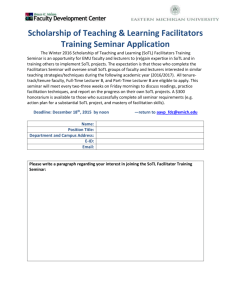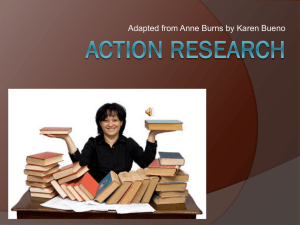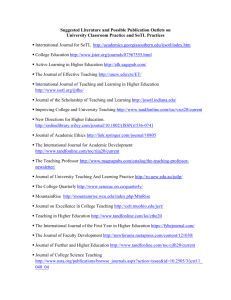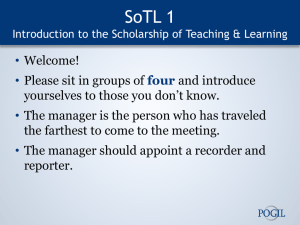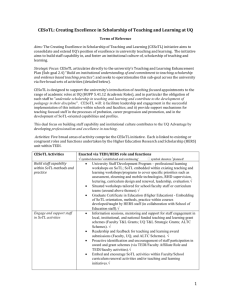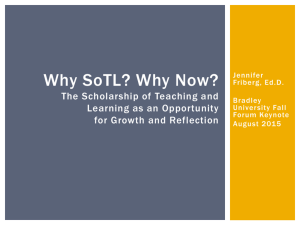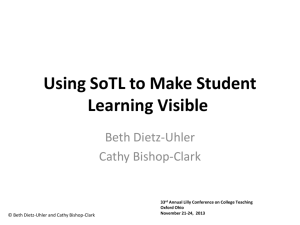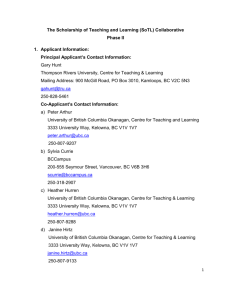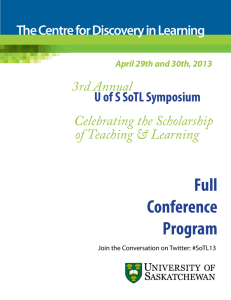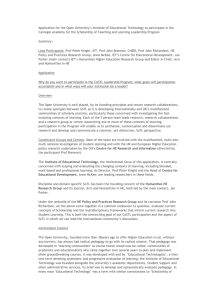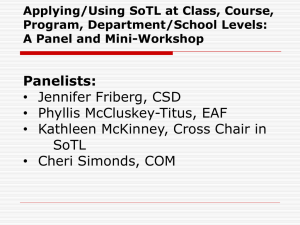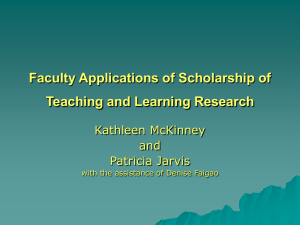Engaging with research ethics and research
advertisement
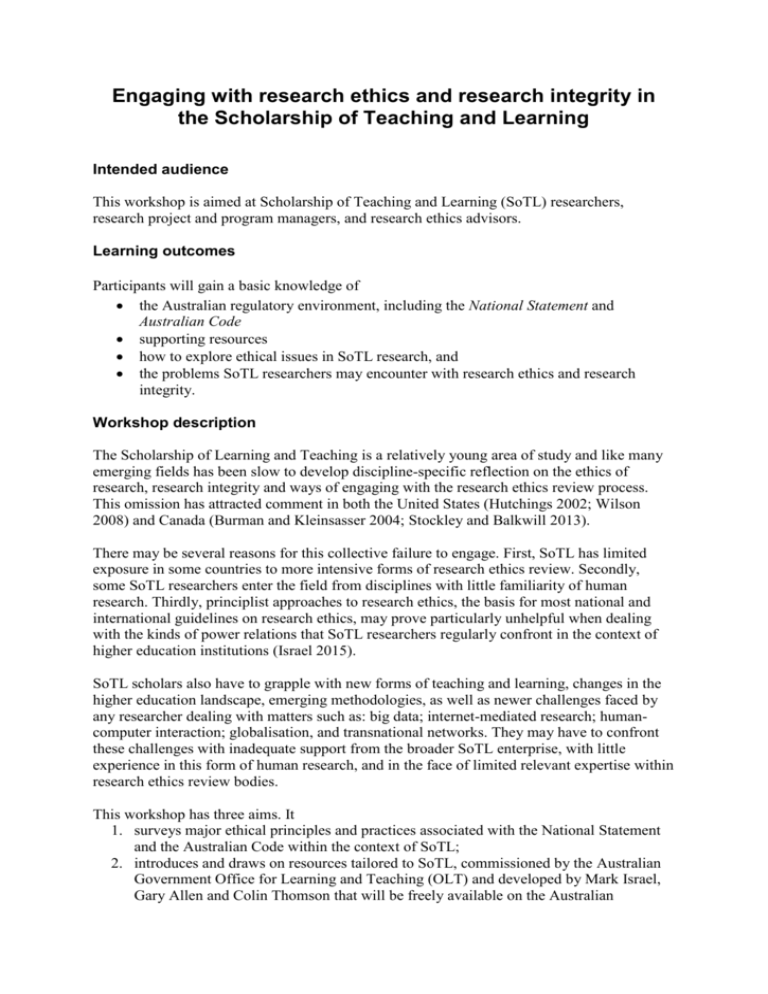
Engaging with research ethics and research integrity in the Scholarship of Teaching and Learning Intended audience This workshop is aimed at Scholarship of Teaching and Learning (SoTL) researchers, research project and program managers, and research ethics advisors. Learning outcomes Participants will gain a basic knowledge of the Australian regulatory environment, including the National Statement and Australian Code supporting resources how to explore ethical issues in SoTL research, and the problems SoTL researchers may encounter with research ethics and research integrity. Workshop description The Scholarship of Learning and Teaching is a relatively young area of study and like many emerging fields has been slow to develop discipline-specific reflection on the ethics of research, research integrity and ways of engaging with the research ethics review process. This omission has attracted comment in both the United States (Hutchings 2002; Wilson 2008) and Canada (Burman and Kleinsasser 2004; Stockley and Balkwill 2013). There may be several reasons for this collective failure to engage. First, SoTL has limited exposure in some countries to more intensive forms of research ethics review. Secondly, some SoTL researchers enter the field from disciplines with little familiarity of human research. Thirdly, principlist approaches to research ethics, the basis for most national and international guidelines on research ethics, may prove particularly unhelpful when dealing with the kinds of power relations that SoTL researchers regularly confront in the context of higher education institutions (Israel 2015). SoTL scholars also have to grapple with new forms of teaching and learning, changes in the higher education landscape, emerging methodologies, as well as newer challenges faced by any researcher dealing with matters such as: big data; internet-mediated research; humancomputer interaction; globalisation, and transnational networks. They may have to confront these challenges with inadequate support from the broader SoTL enterprise, with little experience in this form of human research, and in the face of limited relevant expertise within research ethics review bodies. This workshop has three aims. It 1. surveys major ethical principles and practices associated with the National Statement and the Australian Code within the context of SoTL; 2. introduces and draws on resources tailored to SoTL, commissioned by the Australian Government Office for Learning and Teaching (OLT) and developed by Mark Israel, Gary Allen and Colin Thomson that will be freely available on the Australian Government Office for Learning and Teaching (OLT) and the Australasian Human Research Ethics Consultancy Services (AHRECS) websites; and 3. explores a series of hypothetical and real case studies of ethical issues in SoTL research, inviting further commentary from attendees to be shared with the broader SoTL community. The workshop uses a mixture of small group engagement with case studies, large group interactive discussion of more common and thornier ethical issues, and a collective process for identifying future needs of the SoTL community and the role various organisations might play in responding to these needs. Burman, M.E. and Kleinsasser, A.M. (2004). Ethical guidelines for use of student work: moving from teaching’s invisibility to inquiry’s visibility in the scholarship of teaching and learning. The Journal of General Education, vol. 53(1), pp. 59-79. Hutchings, P. (Ed.). (2002). Ethics of inquiry: Issues in the scholarship of teaching and learning. Menlo Park, CA: The Carnegie Foundation for the Advancement of Teaching. Stockley, D. and Balkwill, L-L. (2013). Raising Awareness of Research Ethics in SoTL: The Role of Educational Developers. The Canadian Journal for the Scholarship of Teaching and Learning. vol. 4(1), Article 7. http://ir.lib.uwo.ca/cjsotl_rcacea/vol4/iss1/7 Wilson, J.H. (2008). The value and ethics of the scholarship of teaching and learning. In S.A. Meyers and J.R. Stowell (Eds.), Essays from excellence in teaching (Vol 8). Society for the Teaching of Psychology. http://www.teachpsych.org/resources/e-books/eit2008/eit0804.pdf (accessed 13 January 2014). Facilitator biographies Professor Mark Israel The University of Western Australia, Perth, mark.israel@uwa.edu.au Mark works in criminology, sociology, law and education. His books include Research Ethics and Integrity for Social Scientists: Beyond Regulatory Compliance (Sage, 2015). Mark was the Prime Minister’s Australian University Teacher of the Year in 2004, and has been a Fellow and Discipline Scholar with the Australian Learning and Teaching Council (predecessor of the Office for Learning and Teaching). He has undertaken consultancy for State and Commonwealth governments, CSIRO, NGOs, higher education institutions in Australia, New Zealand and Hong Kong, and for the European Research Council. Dr Gary Allen Griffith University, Nathan, g.allen@griffith.edu.au Gary is Senior Policy Officer at Griffith University. He has worked with research ethics committees in Australia, Canada, the United Kingdom and Vietnam. Gary has acted as a training facilitator for the National Health and Medical Research Council (NHMRC) and has been involved in revising the National Statement. He has completed consultancy work for the CMC, CSIRO, NHMRC, State and Commonwealth governments, various universities and health commissions. Gary will be co-facilitating by videoconference.

